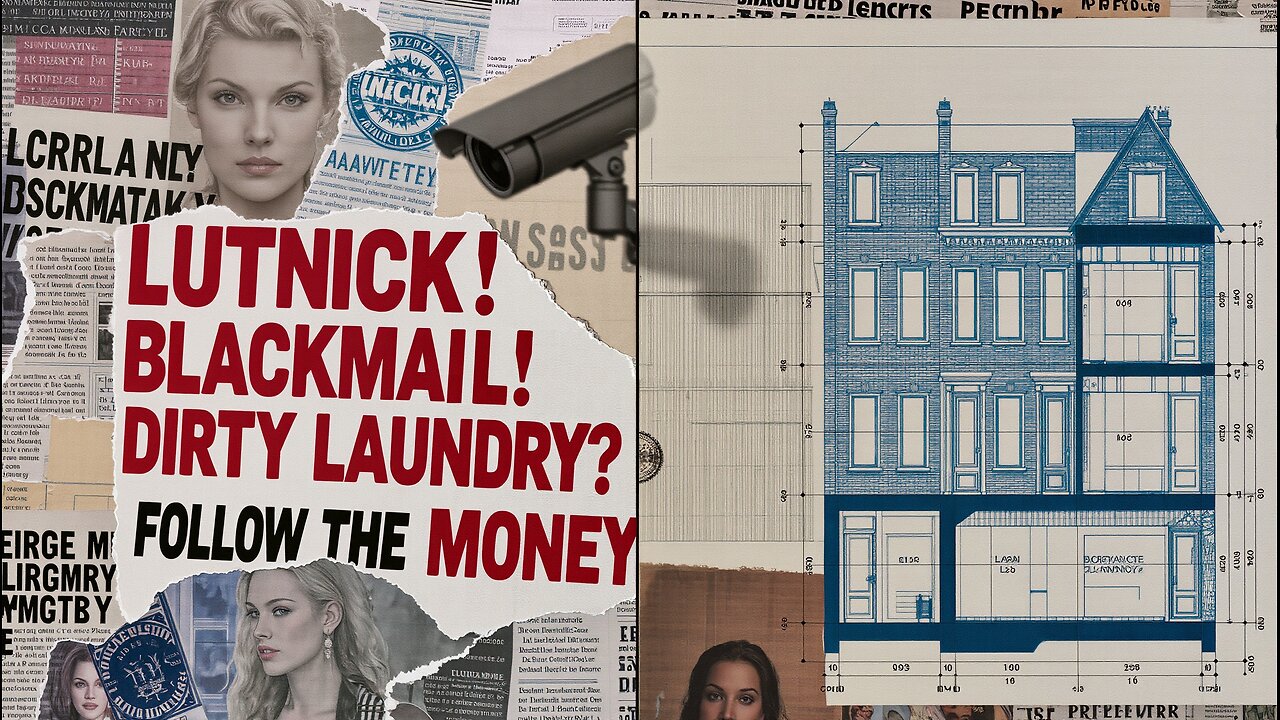Premium Only Content

What Do Lutnick's Blackmail Claims Reveal?
#EpsteinFiles #EpsteinMoney #EpsteinLaundering #FollowTheMoney #MoneyTrail #HiddenLedgers #DirtyMoney #DarkFinance #CashFlows #FinancialCrimes #ShellCompanies #OffshoreAccounts #MoneyMover #BankingSecrets #CapitalFlows #FinancialClout #UndergroundBanking #EpsteinFunds #MoneyMasks
Howard Lutnick, billionaire financier and Commerce Secretary, has stepped into the Epstein saga with a detail that—if taken seriously—may change the way the scandal is remembered. In his recent podcast appearance, Lutnick leaned hard on the familiar myth: Epstein as “the greatest blackmailer ever,” the man with cameras, tapes, and kompromat on the global elite. But tucked within that retelling is a missing clue: the insistence on surveillance as Epstein’s true power may be a deliberate feint, a cover for the far more mundane yet devastating reality that Epstein’s empire was built on financial laundering, not voyeuristic leverage.
For decades, Epstein was described as the spider in a sexual web, an image designed for tabloid headlines. Yet what made him truly indispensable to the powerful was not the supposed possession of videotapes but his quiet role as a private clearinghouse for discreet capital. Lutnick, a Wall Street insider who lived next door to Epstein, is perfectly positioned to understand this. His choice to spotlight cameras and massages may itself be a performance meant to preserve the myth—because the real danger is not salacious footage but financial records that show how money truly moved.
Consider Epstein’s early career. He was not a filmmaker or spy, but a “money manager,” a phrase long dismissed as cover. Yet it was precisely through that cover that he gained control over fortunes like Leslie Wexner’s. Once he had power of attorney for a billionaire’s assets, he could weave those funds into a network of trusts, shells, and offshore accounts. The structure looked like ordinary stewardship but operated like a 21st-century version of the Knights Templar: assets offset across borders, reconciled invisibly through ledgers rather than transported in cash.
Here is where Lutnick’s comments become significant. By reviving the “blackmail” story in 2025, he provides an alibi in advance. If his name surfaces in financial disclosures linked to Epstein—transfers, loans, investments—he can fall back on the tale of surveillance. “Epstein spied on me,” the story runs, “he gathered information without my consent.” Thus, the very myth Lutnick is reinforcing becomes his insurance policy. The missing clue is not what he says about Epstein, but why he says it now: to inoculate himself before a paper trail can speak louder.
The triad of Epstein’s protection—financial conduit, blackmail aura, mutual complicity—was always designed to be self-reinforcing. The blackmail myth misdirected journalists, soothed clients, and bought Epstein the reputation of untouchability. In turn, that reputation ensured that billions could be moved as “normal business.” It is the genius of camouflage: what the world thought was a vault of tapes was really a ledger book dressed in scandal. Lutnick, knowingly or not, has just reminded us how effective the ruse remains.
The real “client list” will not be found in FBI vaults or in dusty DVD collections. It exists in bank servers, trust company registries, and offshore filings. It appears not as a scandalous sex tape but as a transfer of $42 million to a shell account, a loan forgiven in the Caymans, a trust registered in Bermuda with a nominee director. These records are not titillating, but they are lethal to reputations. And if released, they would prove that Epstein was less a blackmailer than the greatest launderer of his age.
Lutnick’s missing clue, then, is not in what he reveals but in what he obscures. By clinging to the myth of Epstein the voyeur, he diverts attention from Epstein the banker. His whisper of cameras points away from the filing cabinets, compliance offices, and offshore account ledgers where the real scandal lies. If the truth surfaces, history may rewrite Epstein not as the spider in a sexual web but as the hub of a global money machine—and Lutnick’s nervous story as the sound of someone who knows the ledgers may yet come to light.
-
 LIVE
LIVE
Wendy Bell Radio
4 hours agoDemocrats Need To Look In The Mirror
6,970 watching -
 LIVE
LIVE
LFA TV
14 hours agoLIVE & BREAKING NEWS! | MONDAY 10/6/25
3,230 watching -
 DVR
DVR
Chad Prather
22 hours agoEven Now!! Is It Too Late For A Miracle?
7.89K20 -
 1:20:19
1:20:19
JULIE GREEN MINISTRIES
2 hours agoLIVE WITH JULIE
36.3K100 -
 LIVE
LIVE
The Bubba Army
2 days agoBad Bunny Disrespectful? - Bubba the Love Sponge® Show | 10/06/25
1,745 watching -
 2:00:52
2:00:52
BEK TV
3 days agoTrent Loos in the Morning - 10/06/2025
6.67K -
 1:21:55
1:21:55
Mike Rowe
4 days agoThis Is How We CHANGE Education Today | Meredith Olson #451 | The Way I Heard It
12.2K12 -
 1:18:46
1:18:46
Steve-O's Wild Ride! Podcast
3 days ago $1.29 earnedJacoby Shaddix Breaks Down Papa Roach Longevity | Wild Ride #269
10K4 -
 17:42
17:42
Nate The Lawyer
2 days ago $3.13 earnedHow A Criminal Illegal Alien Scammed His Way Into A $300k Government Job.
12.6K14 -
 28:46
28:46
DeVory Darkins
15 hours ago $14.75 earnedPritzker HUMILIATED after brutal fact check as Democrat candidate calls for political assassination
33.9K102
